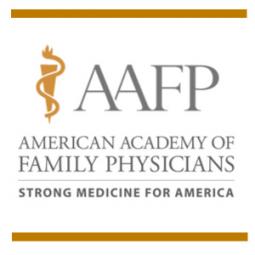 7 in 10 people in the U.S. see a doctor for their health care, and prefer seeing a doctor over a nurse practitioner, based on a poll Ipsos conducted on behalf of the American Academy of Family Physicians.
7 in 10 people in the U.S. see a doctor for their health care, and prefer seeing a doctor over a nurse practitioner, based on a poll Ipsos conducted on behalf of the American Academy of Family Physicians.
What do people seek in a doctor? Knowledge, state-of-the-art treatments, experience and trustworthiness are the top traits people seek in health providers overall.
Ipsos probed further into various traits for clinicians (including doctors, nurses and NPs), asking which of these factors were embodied in the health professional people want to receive care from. The most important attributes for doctors were:
- Who I want to see when I am sick (83%)
- A leader (83%)
- Up to date when it comes to the latest medical advances and treatments (80%)
- Experienced (77%)
- Professional (78%)
- Knowledgeable (77%)
- Someone in whom you have confidence (74%)
- Someone you trust (72%)
- Who I want to see for preventive care (72%)
- Someone you respect (71%)
- Gives you what you need (63%)
- Dependable (56%)
- Effective (56%)
- Someone who cares about you (54%)
- Focused on patients (51%).
The most important attributes for nurses and nurse practitioners were:
- Comforting (71%)
- Friendly (68%)
- Patient (63%)
- Good listener (56%).
Ipsos surveyed 1,000 U.S. adults 18 and over, as well as 320 Opinion Leaders in November 2013. Ipsos defines “Opinion Leaders” as people who are registered to vote, have at least a college degree, are over 25 years of age, employed or looking for work, and earn more than $75K a year.
Health Populi’s Hot Points: This poll was conducted at roughly the time a survey on the most trusted professionals in America was done, discussed earlier this week on Health Populi – finding that nurses and pharmacists are the most trusted professionals in the U.S., above physicians. In that Gallup poll, 82% of U.S. adults rank nurses as having high or very high ethics, compared with 69% of people who say doctors garner high trust.
It is striking, then, to compare the attributes people assign to doctors versus nurses called out above – that doctors are valued for their knowledge, leadership, technical expertise; and nursing professionals for more social characteristics, like being patient, a good listener and comforting.
Based on this dichotomy, the trust gap is understandable.
Some doctors have some work to do, then, on social skill-building, in patients’ eyes; and nurses, who are trained to take on and already do knowledge-work with/for patients, will be increasingly called on to do so in team-based care to bring those skills to the fore even more frequently.
As the U.S. looks to leverage patient engagement as the “blockbuster drug of the century” (thank you, Leonard Kish), the role of nurses as trusted health professional cannot be understated: physicians taking on value-based, population-health, and financial risk for patient care should ensure that nurses play a central role on the care team to drive patient activation and outcomes.




 I'm in amazing company here with other #digitalhealth innovators, thinkers and doers. Thank you to Cristian Cortez Fernandez and Zallud for this recognition; I'm grateful.
I'm in amazing company here with other #digitalhealth innovators, thinkers and doers. Thank you to Cristian Cortez Fernandez and Zallud for this recognition; I'm grateful. Jane was named as a member of the AHIP 2024 Advisory Board, joining some valued colleagues to prepare for the challenges and opportunities facing health plans, systems, and other industry stakeholders.
Jane was named as a member of the AHIP 2024 Advisory Board, joining some valued colleagues to prepare for the challenges and opportunities facing health plans, systems, and other industry stakeholders.  Join Jane at AHIP's annual meeting in Las Vegas: I'll be speaking, moderating a panel, and providing thought leadership on health consumers and bolstering equity, empowerment, and self-care.
Join Jane at AHIP's annual meeting in Las Vegas: I'll be speaking, moderating a panel, and providing thought leadership on health consumers and bolstering equity, empowerment, and self-care.